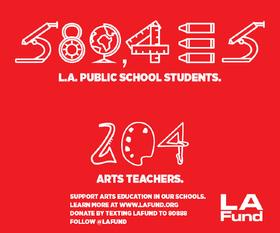If Governor Rick Scott has his way, Florida schools will see a boost to their budget this year. That is good news for schools pinching their pennies as budgets have dwindled in recent years due to increased students and falling property values. However, the additional money won’t come without a cost, as Scott wants to move funds from the prison system and Medicaid program to offer more funding for the public school system.
Education aTop Priority in Florida
According to a report at Tampa Bay Online, Scott is making a dramatic shift in policy by citing education as one of the top priorities for the state of Florida this year. Last year, the governor was criticized by Florida residents for slashing the education budget by $1.3 billion, which amounted to over $500 per student. The total cut was less than the governor had requested, decreasing from a 10-percent cut in his initial request to an eight-percent cut approved by the Florida legislature.
This year, Scott wants to boost the public school budget by $1 billion, bringing it closer to what it was prior to last year’s decreases. The change of heart by the governor may be attributed to a number of factors. First, in town meetings across the state, Scott heard time and time again how important education was to Florida residents.
“They [Floridians] want education to be a priority,” Scott explained to HT Politics. “I’m committed to act on what I’ve heard.”
The state is currently at the bottom of the pack in terms of education spending, teacher salaries, and graduation rates, according to an article in the . While Florida Democrats are happy to see the governor change his tune on education this year, they are still concerned that it will take more than a single boost in the state budget to bring education back to the quality it enjoyed just a few short years ago.
“He is replacing part of the cake that was taken last year,” Ron Saunders, state representative and House minority leader told the New York Times. “It’s not like education funding is a lot better off. But we are happy it’s not getting cut again.”
This video offers an overview of community colleges in Florida.
Governor Scott’s Dismal Approval Ratings
Some speculate that Scott is more willing to listen to Floridians when it comes to education this year because his approval ratings over the past year have virtually plummeted in his home state. Since the new governor took office in 2010, he has watched his approval rating inch down to 30 percent. Although it is slowly creeping back up in recent months, the governor appears to have learned a valuable lesson about listening carefully to what your constituents want.
“What a difference a year makes,” Susan MacManus, a political science professor at the University of South Florida in Tampa, told the New York Times. “Heading into a major election year, one has to be very pragmatic and politically attentive.”
In 2012, all of the state legislators in Florida are up for reelection. Scott now appears to be looking out for the welfare of his lawmakers. He also seems to be heeding the concerns of Florida residents and business owners, who have long been crying for more education funding to improve the quality of state schools. His bruising legislative session last year that involved major cuts to education may have also left a significant impression on him. Finally, a projected growth of 30,000 students in Florida Public Schools has left Scott little choice but to find a way to ensure these students get a decent education in his state.
This video offers a look at Hillsborough Community College.
Source of the Money
Pulling $1 billion out of a hat is a magic trick most popular politicians eventually learn to do, but Scott’s proposal leaves a sour taste in the mouths of some Floridians. The additional money for education has to come from another area of the budget, and Scott is primarily looking at cuts to the prison system and Medicaid program to get the education funding he wants. According to HT Politics, Scott’s proposal cuts $2.1 billion from Medicaid.
Scott believes the current Medicaid budget, which totals $20 billion, has the potential to “bankrupt” the state. He and his legislators have been working hard on major Medicaid reform that would move more patients into managed care, although their work to date still needs approval from the federal government to continue. Scott’s latest cuts would include limiting emergency room visits, and hospital stays for Medicaid patients. It would also require a new “flat rate” system for hospitals that would apply to Medicaid patients across the board.
Next Step: State Lawmakers
The bill proposed by Governor Scott still has to go to the Florida legislature for approval, and not every state lawmaker is on board with Scott’s proposals at this time. However, according to the , Scott has drawn a line in the sand when it comes to education funding.
“I will not sign a budget that does not significantly increase state funding for education,” Scott announced in the Miami Herald, sending a definitive veto threat to Republican state lawmakers less than happy with the proposal. “We’ve got to really focus on education,” Scott added.
Scott’s proposal will be used as a foundation for the budget state lawmakers will create next year. If this particular model is approved by legislators, it could cut more than $3 billion from the current state budget of $69.6 billion.
Questions? Contact us on Facebook. @publicschoolreview















